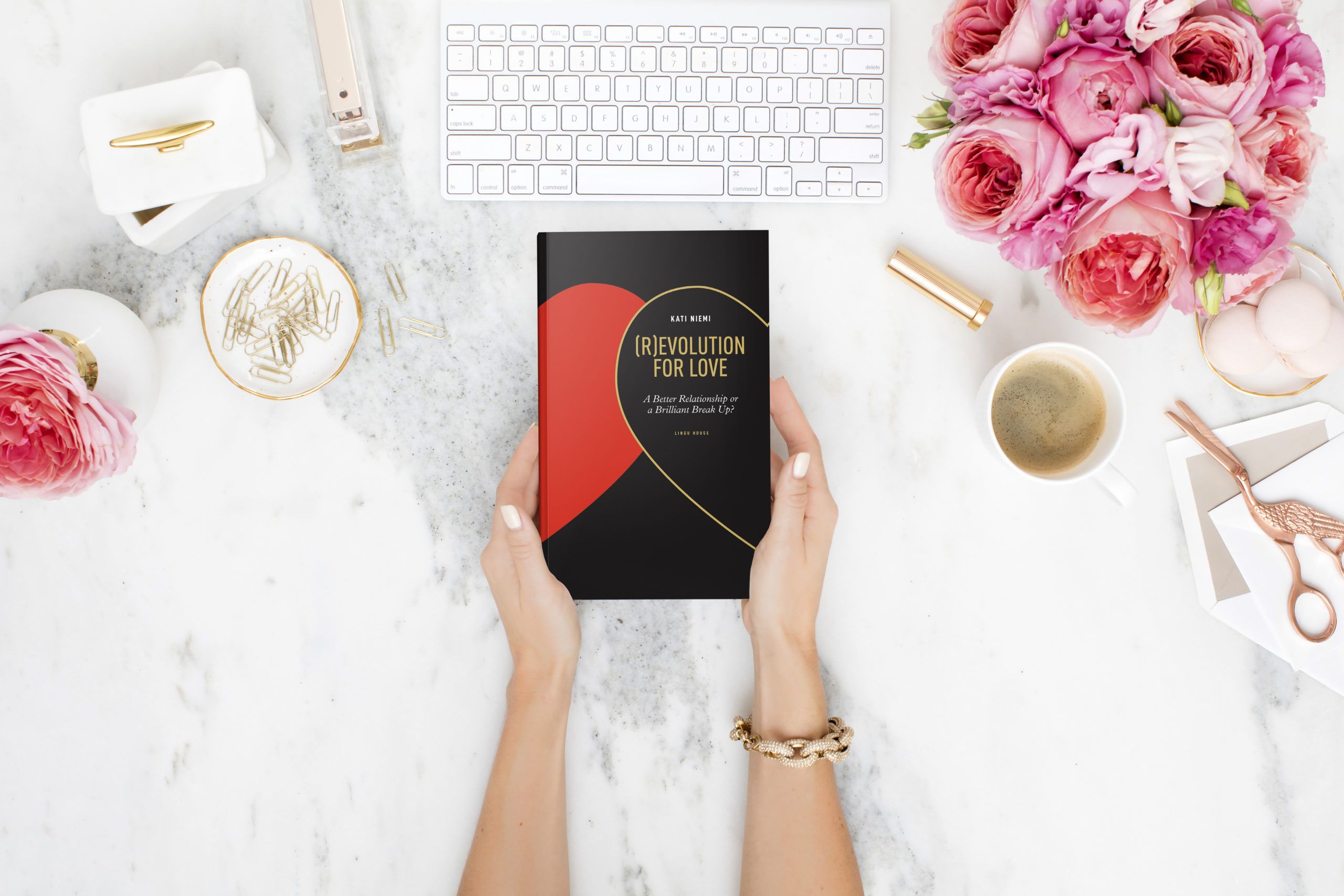Cheating is very common but only few get caught. Either in the act or their partners find messages on the cheater’s phone or e-mail. Some cheaters don’t feel they are guilty of anything serious. Infidelity is no longer a crime under the marriage laws and the worst punishment is people’s disapproval.
Cheating in a relationship is a tough nut to crack and many are interested in the root causes. Find out more about this topic in the blob post: CHEATING AND THE COLLECTED EXCUSES: What is a good reason to cheat? Wouldn’t it be nice to think that love and a good relationship would automatically rule out cheating? But do they even have anything to do with why people cheat? Could it really be that simple?
Many of those who have cheated their partners are smart and normal people with high morals. So why does it happen so often.

Are relationship problems simply just stress and lack of sleep?
Why does stress and lack of sleep cause problems in a relationship? Or do bad relationships cause stress and sleeplessness? How to get help?
Cheating is not nice but it is very common. That’s why we must have the courage to discuss it openly. The worst mistake is to try and hide it. Instead of feeling ashamed and sweeping it under the rug, the best way forward is to talk about it honestly. Then at least you have some hope that the cheating will stop, especially if it is yourself that you are cheating.
Cheating in a relationship and the development of morality and consciousness
In this article, I want to approach cheating from the perspective of morality and consciousness and how they develop:
- Why is cheating in a relationship so common?
- How does cheating appear from the perspective of the development of morality and consciousness?
- Are cheaters thoroughly immoral or can we develop our morals?
- Is cheating the cause or result of relationship problems?
- How to stop cheating in a relationship?
Read the following blog articles on this topic:
-
- CHEATING AND THE COLLECTED EXCUSES: What is a good reason to cheat?
- CELIBACY IN A RELATIONSHIP: How does it feel when you partner does not want to have sex?
- FREE / OPEN RELATIONSHIP: Will the need for freedom only lead to breaking up?
- CHEATING: One night stand. A secret affair. Another woman. A third wheel.

INFIDELITY and the collected excuses: The good reasons for cheating
CHEATING: What is a good reason to cheat? What do the cheated partner, “the other woman/man” or the cheater choose to believe in?
Why is cheating in a relationship so common?
There are as many reasons for cheating as there are people in relationships. For a deeper analysis of the reasons for cheating, read this article: CHEATING AND THE COLLECTED EXCUSES: What is a good reason to cheat? A survey will never reveal if your partner is specifically cheating on you (and if they do, why). On the other hand, if you are cheating on your partner, surveys you read about it in magazines are hardly going to know what your personal circumstances are?
However, theories are always interesting and they might offer answers to your personal questions. Who knows you might get a lightbulb moment and see the root cause for your or your partner’s cheating. Despite your relationship being a good one.

THE JEALOUS TYPE: Am I too jealous?
“I feel so jealous because of my partner” Jealousy is a painful feeling. Use the power of your subconscious and let go of jealousy!
It is part of human condition to observe other people’s behaviours more carefully than our own. Psychologists do this professionally and have formulated theories based on their observations. Some of the countless theories are found to be more viable than others. Similar findings from different studies would indicate that a theory has some substance. Instead, or at least in addition to theories, it is a better use of your time to focus your attentions on yourself with the support of a professional coach or therapist.
Since we are probably all curious what science has to say about cheating, I will discuss a couple well-known, interesting theories.
The development of consciousness and self-development
According to Robet Kegan, a developmental psychologist and professor emeritus at Harvard, the majority of adults reach no more than one half of their potential on the five-stage arc of development. Most adults operate pretty much like children. Building their self-image mostly on real and imagined social pressures.
Only a minority of adults is able to set boundaries between themselves and others and successfully meet the demands of family life. Kegan refers to relationship to illustrate the various stages of adult mental development.
According to Kegan, most are not able to differentiate between their own interests and the demands of their environment. And if you have lost your direction in life, life becomes stressful and you may end up taking the quickest escape. This may take the form of cheating your partner with whom you have a perfectly good relationship.

HOUSEWORK AND SEX: relationship problems or happiness?
Housework can be the biggest reason for couples to fight or even to break up. It could just as well be a source of wellbeing. Like sex.
In Kegan’s five-stage model, the adults who don’t develop beyond the first couple of stages are more interested in “navel gazing”: surviving a life that seems to be little more than constant struggle without meaningful goals. Read more on this topic in the (R)evolution for Love article Science reveals: not all adults maintain an adequate level of development: How to improve your well-being through self-development?
When most adults are either unaware of their inner satnav or ignoring it, this means that most adults are also oblivious to their problems.
When the root causes of their problems remain a mystery or the person subconsciously refuses to see them, what is left is just managing the symptoms.
The (R)evolution for Love mission is to gently but firmly nudge you, a smart individual with all your potential, to wake up to the facts that make your relationship feel difficult. The aim is to encourage you to develop yourself so that you would be happier – either in or outside of a relationship. Read more about the mission of (R)evolution for Love and the reader reviews here.

What is an open relationship? Does it lead to breaking up?
What is an open relationship? Who are non-monogamous open relationships for? Is your partner suggesting consensual non-monogamy?
Lack of morals
Psychologists study the development of morality to be able to establish in, for example, criminal cases, at what age a child can be expected to understand the repercussions of their actions. When is it biologically justified not to impose a punishment on a child who has committed criminal acts do that they can continue to develop and mend their ways? Adults, too, deserve a second chance, but how long should you put up with someone’s immoral behaviour in a relationship or otherwise?
Apart from the five-stage model introduced by Kegan, many other studies also suggest that the moral development of most adults seldom reaches beyond a relatively modest level. One such theory is Kohlberg’s six-stage model of moral development.
According to Kohlberg’s theory, an alarmingly large proportion of adults believe they are doing the right thing just because “we have collectively created this rule so I’m going to follow it”. Never mind the consequences or how the subject – or object – of that immoral action felt. Are you still puzzled about how the Nazis or some terrorist organisations found their supporters?
What if cheating is at least partly simply a manifestation of our low level of moral development?
How do we know how to act when there are no legal or official limits or rules on cheating?

Sexless Marriage: Celibacy when your partner doesn’t want to have sex
Living in a sexless relationship when your partner does not want to have sex. No sex in marriage. Involuntary celibacy in a sexless marriage
If we are to believe that only few progresses to the higher levels in Kohlberg’s model and are instead directed by external pressures and written rules, is it any wonder that cheating is so common?
And would self-development offer a key to raising your personal moral standards in your intimate and other relationships?
Is cheating the cause or result of relationship problems?
Some cheaters know and feel that they are doing the wrong thing and feel guilty. And yet, unless they get caught, they continue on that wrong path. They might have a slightly more accurate moral compass than hardened serial cheaters, but the end result is still the same. Which level of moral development do you need to achieve to stop cheating? Or is it more about the other factors in the relationship that, when not in balance, drives an otherwise moral person to cheat as a way of escaping?
Is cheating the cause or result of relationship problems?
Could cheating be just a way of having fun to which an otherwise moral person has grown addicted? Cheating adds energy and excitement in the form of an extra dopamine boost in the brain. If cheating has become an addiction, how to wean yourself from it without withdrawal symptoms? Learn how your neurotransmitters and hormones actually work. It may help you satisfy your need for pleasure through other means than serial cheating.
A coach will tell you about the tools available to you that you can learn to pause and take an honest and self-compassionate look at yourself.
Denying a problem prevents you from identifying and resolving the root cause for it. Although cheating is so common, other people’s outwardly similar situations do not really offer any clues as to why you or your partner are cheating.

How to improve your relationship in seconds?
If you think there are no quick and easy ways to improve your relationship, think again. Find out how to improve your relationship in seconds.
Other people’s experiences don’t explain what is going so wrong in your relationship that you deliberately add to your own misery through your own actions, time after time. The causes for your behaviours have roots that stretch way back to your past. Only by self-development can you rid yourself from the vicious circle of cheating and continue your way forward towards a better relationship of a successful break up free from your old baggage.
How to stop cheating in a relationship?
It is said that the sum of all vices is constant. This means you can let go of old routines by replacing them with new ones. A very simplistic example is weaning your infant from breast feeding by giving them the bottle. In most cases, what we adults are also ultimately looking for is intimacy and mental wellbeing. Read more about sexless relationships, why they can be hurtful and drive a person to cheat: CELIBACY IN A RELATIONSHIP: How does it feel when you partner does not want to have sex?
Creating wellbeing is not only the duty of your partner. We are all responsible for our own wellbeing. Read this (R)evolution for Love blog post on how to improve your wellbeing through self-development.
Cheating is an incredibly accessible and common pastime for many. Some continue cheating throughout their lives, leaving a trail of broken hearts in their wake without realising the pain they are causing themselves!
As a rule, we think we are smarter than others and that we are right.
This type of thinking is a way of protecting ourselves and therefore understandable. However, we can protect ourselves AND achieve a better self-esteem all at once. We can be smart, good, loveable and often right EVEN IF WE ALSO ADMIT that we have problems. Things are seldom black and white, either one or the other. Don’t be afraid to address your problem areas.
If you really want to solve the problem of cheating in your relationship, read more about cheating in the (R)evolution for Love book and this blog under the theme Cheating. You can find the different blog categories at the top right corner of this page and the most recent blogs on the right-hand side column.

IMPROVING YOUR RELATIONSHIP: Tips for a better relationship
10 tips for improving your relationship – Here’s how to make an already good relationship permanently better
Does loving someone stop us from cheating on them?
Many cheaters blame their spouse: they have an annoying personality or habits, there is not enough sex or you simply fell out of love. But are these really the root causes for cheating? For a deeper analysis of the reasons for cheating, read this article: CHEATING AND THE COLLECTED EXCUSES: What is a good reason to cheat?
Blaming others for your mistakes is human and, in a strange way, makes sense even when it really shouldn’t. Looking for scapegoats is just as easy as cheating, if not easier.
Read more morality, love and cheating in the book (R)evolution for Love. The book includes an exercise entitled The Cheat’s Progress. It is a gentle but thought-provoking exercise that helps you see whether love is enough to stop one from cheating. It also shows ways how to stop cheating – regardless of whether you are the cheater, the cheated or the third wheel.
The book is a positive, solution-centred take on improving relationships as well as making the decision about breaking up. It discusses a wide range of potential problem areas in relationships throughout its lifecycle without taking sides or laying the blame on anyone.

Motivating You to mindshifting in many ways,
Your Coach Kati Niemi
Clinical Hypnotherapist, NLP Trainer, M.Sc.
[email protected]

“FIVE STARS!” Book reviews: (R)evolution for Love (Amazon Books)
“Five Stars!” Editorial reviews and reader reviews of (R)evolution for Love – A Better Relationship or a Brilliant Break Up? Amazon books

FEEDBACK TO LOVE! Reader reviews (Book+Blog)
RELATIONSHIP GUIDE: BOOK REVIEWS – We are blown over by the feedback the (R)evolution for Love relationship blog and guide have received. WOW!

FREE AUDIOBOOK: Audible, Google Play and other stores’ free trial
Audiobook lovers benefit from FREE trial periods of book stores. Enjoy (R)evolution for Love on Amazon Audible, Google Play & other stores

FREE EBOOK ‘I love you but…’ – To Break Up or Not to Break Up?
Refocus your energy now to improve your love life! This FREE ebook ‘I love you but…’ will help you move towards a better relationship or

How to improve your wellbeing through self-development?
Science has revealed: some adults are not mentally sufficiently developed. How to improve your wellbeing through self-development?

Why does our conscious mind question the power of the unconscious mind?
Is the power of the unconscious mind fake news and is trying to harness it to achieve our full potential a waste of time? What do we mean by the unconscious mind?

INFIDELITY and the collected excuses: The good reasons for cheating
CHEATING: What is a good reason to cheat? What do the cheated partner, “the other woman/man” or the cheater choose to believe in?

What is an open relationship? Does it lead to breaking up?
What is an open relationship? Who are non-monogamous open relationships for? Is your partner suggesting consensual non-monogamy?

Narcissism in a Relationship: “How to Know if My Partner Is a Narcissist?”
What are the signs and causes of narcissism? Can you make a relationship with a narcissist work? Can you heal a narcissistic partner?

Aromatherapy for Libido & Romance – The Best Essential Oils for Love
Sense of smell influences our sexual desire and performance. Aromatherapy tips and the best essential oils for romance, libido, sex and love.

When positive thinking becomes toxic
What is too positive thinking like? Where should we focus the power of our mind and our willpower?

TO BREAK UP OR NOT TO BREAK UP? Should I stay or should I go?
How do you know if you should leave or not. How to make the decision to break up or to improve your relationship? To break up or not?


























